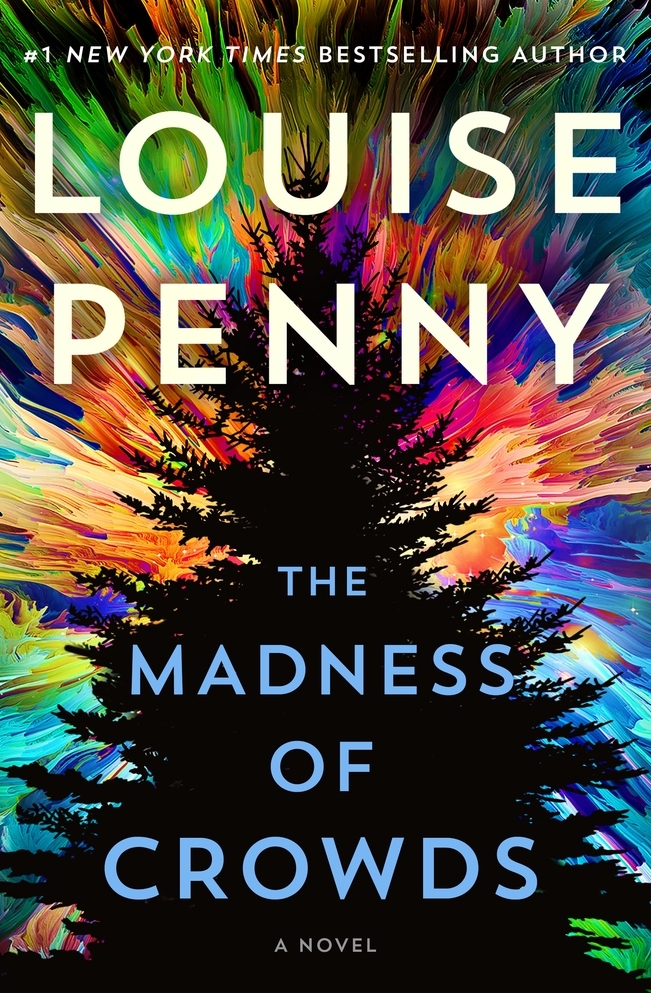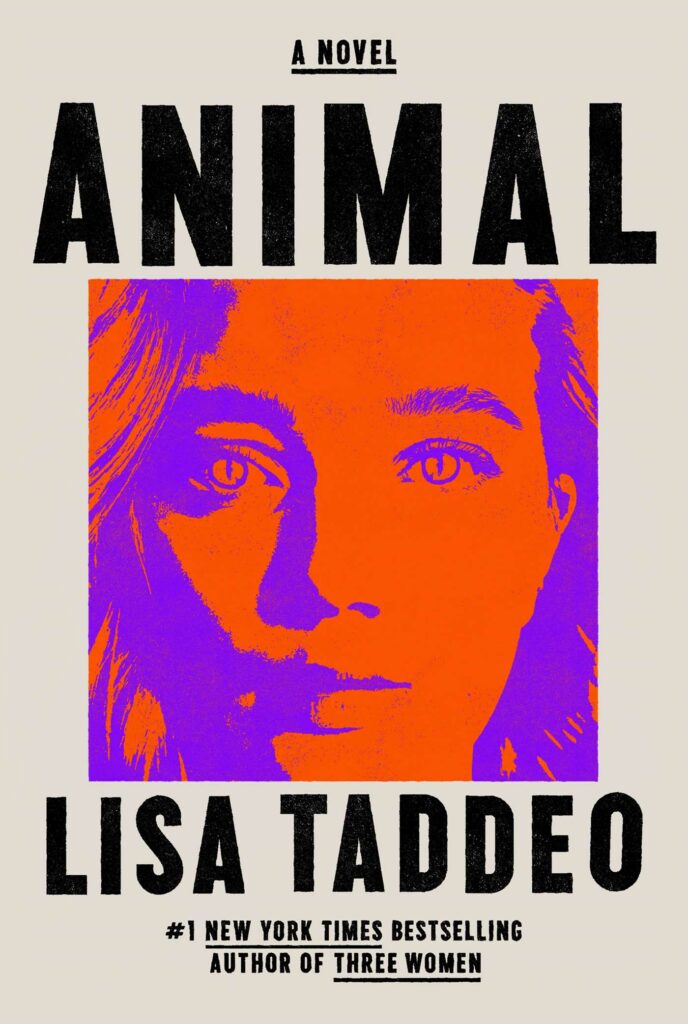CrimeReads contributing editor Lisa Levy selects the year’s best psychological thrillers.
*

The Madness of Crowds, Louise Penny
(St Martin’s)
In thinking about how crime writers are going to chronicle this time, I’ve had many conversations about police, about access to health care, about the stratification of the worst hit populations and how COVID has so blatantly challenged countries with a social safety net and nearly decimated those without one. “Wait, I thought this was about Louise Penny?” the now confused reader is thinking. It absolutely is about Louise Penny, who in her seventeenth installment in the beloved Armand Gamache series, has tackled COVID and its consequences head-on. The book describes how everyday life in the tiny hamlet of Three Pines has changed while also exploring the threat of a statistician who is using the pandemic data as ammunition for a eugenics program. Plus one for the Canadians.

Bath Haus, PJ Vernon
(Doubleday)
Bath Haus begins with our hero, Oliver Park, a twenty-ish recovering addict supposedly in a monogamous relationship, takes advantage of his older partner’s absence to tomcat at a gay bath house (called Bath Haus). It’s refreshing to see a man on the sharp end of the casual sex has its consequences stick, but Vernon is not just making a sociological point. He has presented us with an enticingly dark and twisted set up, and boy does he play it out.

The Collective, Alison Gaylin
(William Morrow)
In my line of work I read a lot of books about mothers and mothering, and it is rare that I come across a book which really interrogates maternal love and expectations (the last one I can think of is Adrian McKinty’s The Chain). Alison Gaylin is up to the task. The Collective is about a secret society of aggrieved mothers who help each other exact revenge on the people who harmed their children. The crimes are carefully plotted and involve many other group members and are executed so that none of them would be suspects in the collective’s crimes. Camille Gardner, whose 15-year-old daughter was murdered five years before by a rich, privileged boy from the local liberal arts college. Still grieving, Camille is recruited to the cause and quickly becomes enmeshed in the group. Gaylin uses the ideas of maternal grief and revenge to clever and creepy ends.

Rhode Island Red, Charlotte Carter
(Vintage)
Jazz musician Nanette Hayes can’t figure out what to do about her mercurial boyfriend, Walter. She can’t explain how an acquaintance ended up dead on her kitchen floor. Things get really heated when it turns out the acquaintance is an undercover cop.

The Push, Ashley Audrain
(Pamela Dorman Books)
Audrain’s psychological thriller about mothering and family is back in familiar territory. Blythe Connor had a cold, unfeeling mother, so she promises herself she will be the opposite with her baby daughter, Violet. But mothering is not all rainbows and unicorns, and Violet is one of those Bad Seed kids who often turn up in these books (see: Baby Teeth, You Were Meant For This, etd). Yet Blythe falls in mother love with her second child, Sam, which leaves both her and Violet surprised, confused, and angry. The Push is not suitable for baby showers or baptisms, but it is for readers who question the domestic arrangements and entanglements of contemporary life.

The Retreat, Elisabeth de Mariaffi
(Mullholland)
I loved de Mariaffi’s account of the Scarborough rapist, The Devil You Know. Her new book, The Retreat, also feels like it might be based on one of Canada’s most prestigious institutions, the Banff Institute. In de Mariaffi’s telling, the High Water Center for the Arts turns into a locked-room mystery after a snowstorm strands the artists in residence and they start slowly dying.

You Love Me, Caroline Kepnes
(Random House)
Long before Kepnes’s brilliantly sick series of books, she worked at Entertainment Weekly (also the former workplace of crime writer Julia Dahl, regular CrimeReads contributor Daneet Steffens, and me). Reading Kepnes is like a mashup of EW and Jim Thompson: she writes essentially dark books from the point-of-view of the twisted Joe Goldberg, who is just looking for a woman to love who doesn’t drive him to commit multiple murders. But she also sprinkles her books with pitch perfect pop culture references, including many references to Pitch Perfect. It’s hard since the success of the Netflix adaptation not to see Joe as Penn Badgley: the former Gossip Girl star is a pitch perfect Joe: too eager, yet still endearing, which is probably how Ted Bundy rolled too. Oh, right, and You Love Me delivers and then some. You should read it.

Animal, Lisa Taddeo
(Avid Reader)
I am a huge fan of Taddeo’s Three Women, a narrative nonfiction book which was really an ethnography without the jargon. Taddeo’s reporting and writing in that book is astonishing: she dives deep into the disparate lives of the titular women without ever losing control of the narrative. The same is true of Taddeo’s fiction debut, Animal. The writing is so engaging on the sentence level that when you sink into the larger argument the Taddeo is making the writing is so engaging on the sentence level that when you sink into the larger argument the Taddeo is making you can’t help but feel something akin to awe.

The Other Black Girl, Zakiya Dalila Harris
(Atria Books)
Harris’s book is a well-reviewed bestseller, so the controversy I am anticipating is not about its merits or its audience appeal. It’s about timeliness: this is a book that’s overdue, a workplace thriller about race, politics, and racial politics set in the very white world of book publishing. It’s no secret that publishing and media in general have a diversity problem. We pay a lot of lip service to #ownvoices and #weneeddiversebooks and #publishingpaidme. How do these hashtags lead to action? By talking about books like Harris’s wherever and whenever we can. It’s the smartest book I’ve read in years about the horrors of competition, old-fashioned gaslighting, and being in thrall to a murky past. Sounds like a thriller to me.

Bad Habits, Amy Gentry
(Mariner Books)
I was recently chatting (via computer, as one does) with Amy Gentry and she mentioned she’s writing a horror novel. In retrospect I think we will see many horror themes in Gentry’s sharp academic satire. Although Bad Habits has a body count, the crimes are always choices. And if grappling with ideas about free will; viciously competing with your colleagues for a paltry grant; and learning how to scrape together a paltry stipend by selling papers to undergrads sounds like fun to you, Bad Habits will deliver. For this disgruntled academic escapee, Habits resonates on all kinds of levels, but what I admire the most is Gentry’s knack of sketching the complexity of women’s relationships both as friends, as lovers, and as rivals.
___________________________________
NOTABLE SELECTIONS
___________________________________
Turnout, Megan Abbott (Putnam) · The Perfect Family, Robyn Harding (Gallery) · The Husbands, Chandler Baker (Flatiron) · Dream Girl, Laura Lippmann (Morrow) ·
For Your Own Good, Samantha Downing (Berkley) · Never Saw Me Coming, Vera Kurian (RH) · The Hunting Wives, May Cobb (Berkley) · My Sweet Girl, Amanda Jayatissa (Berkley) · The Girls Are All So Nice Here, Laurie Elizabeth Flynn (S&S) · Who Is Maud Dixon? Alexandra Andrews (Little Brown)




















